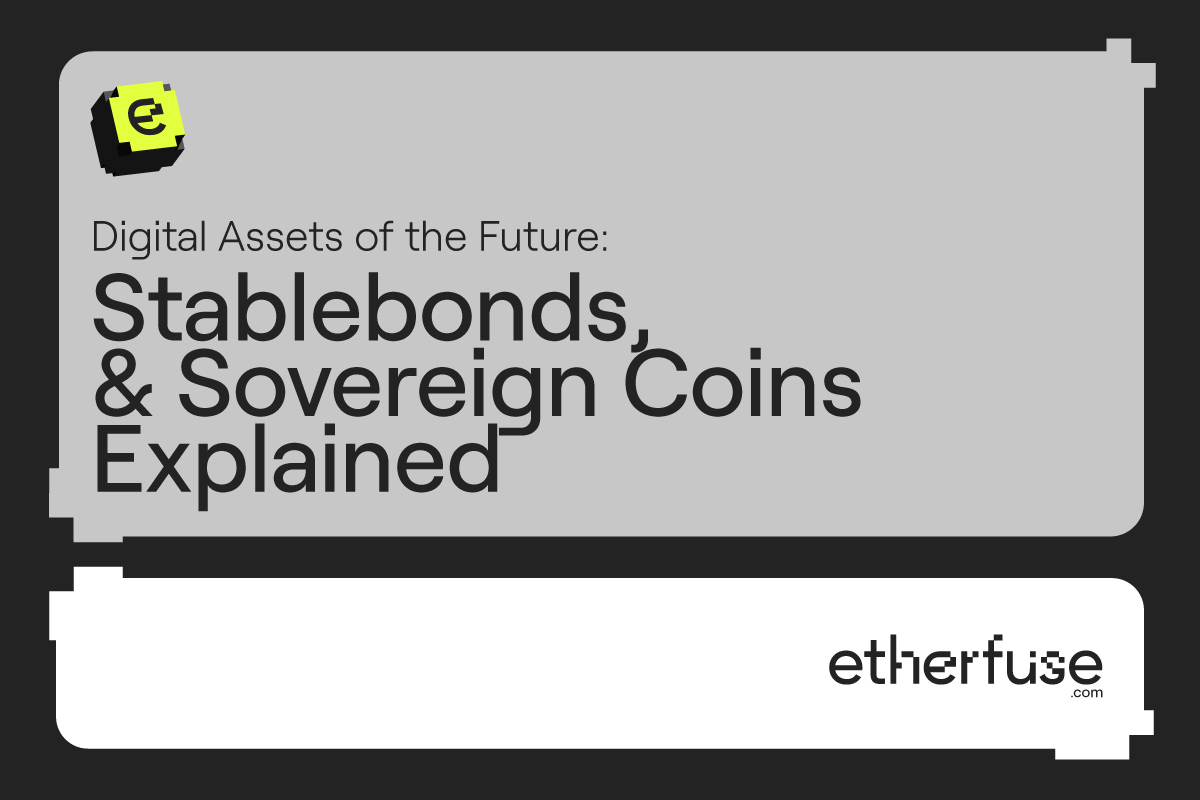Etherfuse
The Problem with Blockchain Infrastructure
On decentralized infrastructure.

A core value proposition of the blockchain is that it is a trustless, decentralized protocol. This means that no central governing body sits between the transactions of two individual parties. A lot of time has gone into ensuring and measuring the decentralization of a blockchain, its architecture, ownership, and exchange of value. However, there is a severe lack of decentralization regarding the infrastructure that powers the blockchain. For example, in 2015, 95% of all Bitcoin hashing power was sitting on the same stage, at the same conference, at the same time.

The blockchain and the technology stack behind the DeFi industry is the future of payments, transacting, communicating, and technology. However, the centralization of blockchain infrastructure represents a considerable risk in Web3. Without needed innovation, we will repeat the same mistakes of centralization as Web2:
- A centralized few own and control most of Web3 infrastructure
- A few act as gatekeepers and capture most of the value of Web3
- Talent will be geographically clustered around first movers
- Web3 will inherit the same financial hurdles present in Web2
Problem Deep Dive
To further illustrate the problem, I'll focus on two common proof-of-stake blockchain networks, Eth2 and Solana. More than 80% of all infrastructure that power Ethereum sits in ~7 countries, on fewer than 7000 fully-synced validators and Solana is no better. Worst, ⅓ of all validators that power Ethereum's blockchain are owned by two companies: Kraken and Coinbase. And, despite Solana having a market cap of $11B there are only ~1800 validators in the world, a majority of which sit in the United States. If the growth of Solana were to match that of Ethereum, we’d expect a lot of growth in node count over the next three years, yet, Ethereum which hasn’t yet fully switched to proof of stake has a surprisingly low amount of nodes — given its impact. There will be growth but there are currently not enough validators properly powering proof-of-stake blockchain networks. Simply put, the blockchain infrastructure of the most popular blockchains are not sufficiently decentralized.
Why does this problem exist?
To demonstrate the reasons why this centralization and consolidation exists lets focus on the requirements to run a profitable validator on the Solana network. A proof of stake network is essentially a popularity contest. Instead of requiring intense computation as a means to store value, they are reputation-based networks. The cost of setting up a profitable validator in some networks, hiring the indispensable talent, and ensuring enough reputation to be able to reach profitability can exceed USD 1MM.
To even start to build a reputation, a validator owner needs to become a player in the network and have a performant node running. To launch a validator she must first possess the technical skills required to maintain, troubleshoot and even debug these systems. To run a validator with the required specs and bandwidth, she might be required to spend thousands a month on infrastructure only. To earn enough to pay for that infrastructure, the engineering effort and marketing required to sustain a reputation that others vote/stake for, it requires 50 - 100k third-party SOL or USD ~$3MM staked against that validator — at the time of this writing. These costs are prohibitive for most people.
To even start, an entrepreneur would need a prohibitive amount in infrastructure costs and a hope that others will eventually vote for her — something that isn’t guaranteed. The marketing effort and brand required to attract the third-party stake to maintain profitability is also no small effort. The current ecosystem and platform to promote and develop a community that will stake against your validator currently happens across an unorganized collection of platforms: Discord, Reddit, Slack, Telegram, Whatsapp and more and managing these ecosystems is costly, inefficient, and full of problematic scams.
etherfuse will solve this
Our mission is improve the decentralization of blockchain infrastructure by lowering the barrier to owning and maintain a validator.
Our focus is to develop the tools, legal infrastructure, software, contracts, and systems to enable anyone in the world an opportunity to participate in Web3’s future.


.avif)


